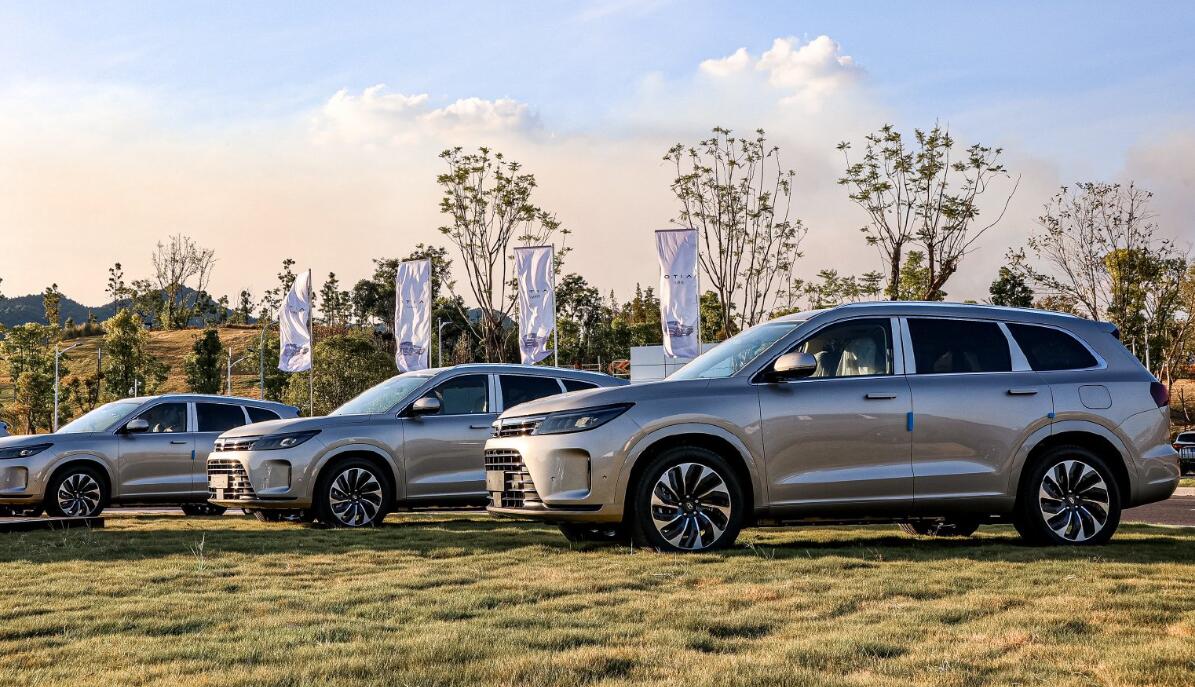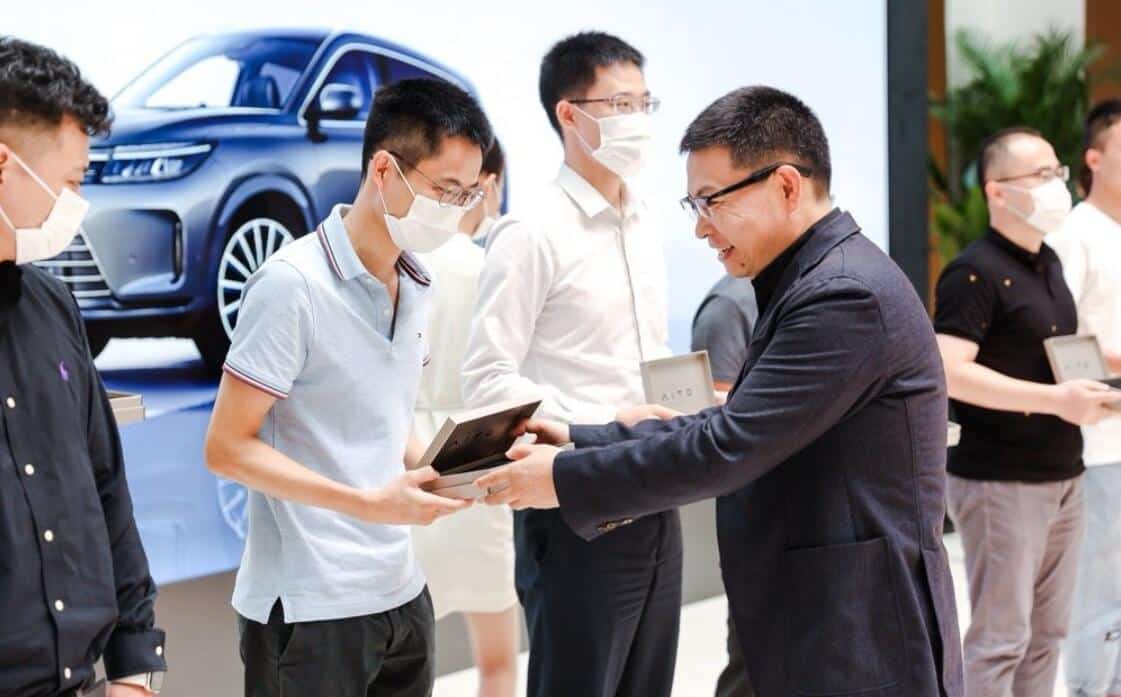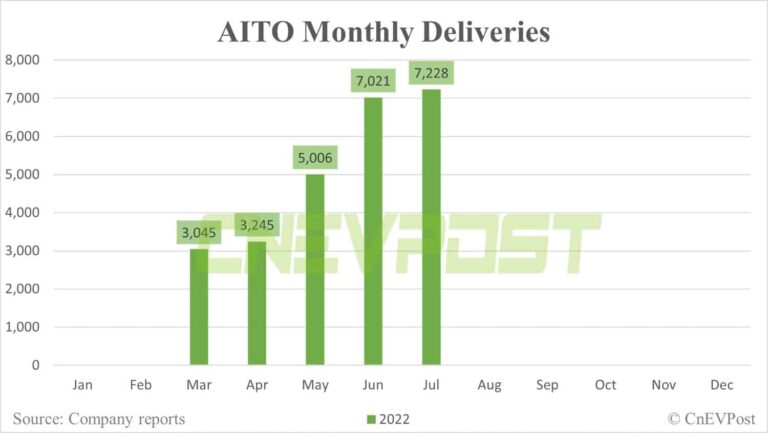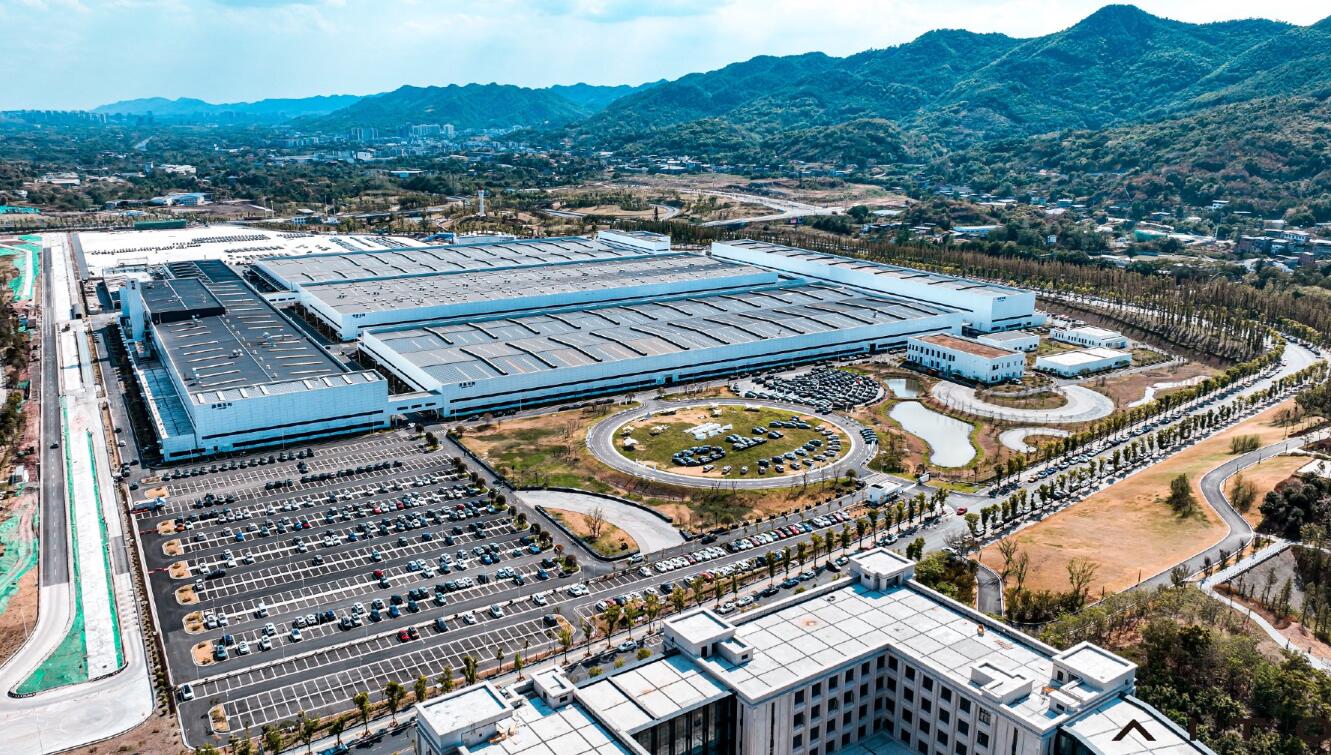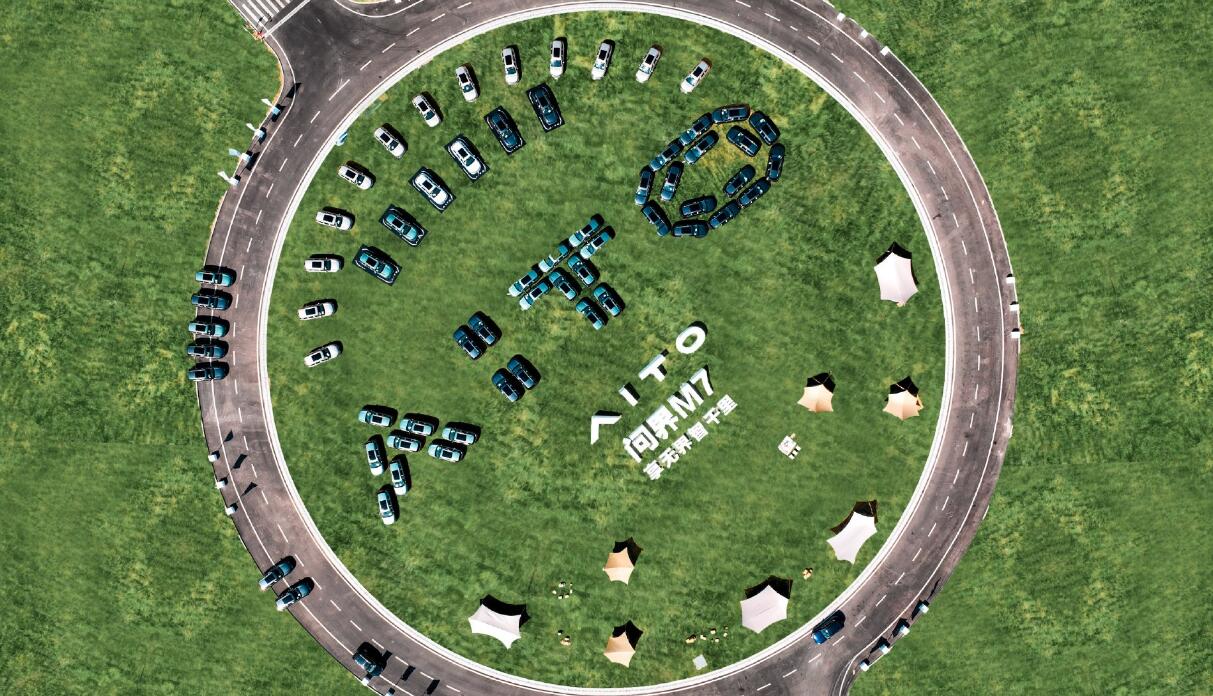The AITO M7 is the second model of the AITO brand after the M5, and is one of the main competitors to Li Auto's Li ONE.
(Image credit: AITO)
AITO, the electric vehicle brand jointly created by Huawei and Seres Group, today officially started delivering its second model, the M7 SUV, following the launch of the EREV (extended-range electric vehicle) early last month.
AITO held the first M7 vehicle delivery ceremonies in Chongqing and Shenzhen, where Seres chairman Zhang Xinghai and Richard Yu, managing director of Huawei and CEO of the tech ginat's intelligent vehicle solutions business unit, delivered the vehicles to owners, according to a live video.
AITO did not disclose the number of M7 vehicles delivered in the first batch, saying only that deliveries of the model in more cities will begin gradually.
Yu launched the AITO M7, the brand's second model after the AITO M5, at Huawei's product launch on July 4.
The AITO M7 is a large new energy SUV with extended-range technology similar to that used by Li Auto in its models.
AITO is offering three versions of the M7 with starting prices of RMB 319,800 ($478,100), 339,800 and 379,800 respectively.
This price range makes the AITO M7 a competitor to Li Auto's Li ONE, which boasts a flat retail price of RMB 349,800.
The length, width and height of the AITO M7 are 5,020 mm, 1,945 mm and 1,775 mm respectively, with a wheelbase of 2,820 mm.
For comparison, the Li ONE has a length, width and height of 5,030 mm, 1,960 mm and 1,760 mm, respectively, and a wheelbase of 2,935 mm.
Yu said at today's delivery ceremony that he had a friend who complained to him about one big drawback of the AITO M7, which was that it was too cheap.
His friend asked if AITO could set the price higher because it would reflect his status, and he used to buy cars that cost more than $1 million, Yu said.
To date, the AITO brand has more than 700 user centers and experience centers covering 171 cities in China, according to Kang Bo, vice president of Seres.
The number of AITO's experience centers and user center stores is expected to expand to more than 1,200 by the end of 2022, according to Kang.
